Imagine turning your home into the bridge of the Star Trek Enterprise, where a disembodied voice deftly answers every question you can ask, and you don't carry an iPhone or iPad anymore. Unfortunately, you also can't unlock your doors, you can't go outside, the brands you like are replaced with generic alternatives, and popular games, creative apps and other content aren't available anymore. This is the fantasy future of Amazon Alexa— but fortunately not the vision of Apple's new HomePod.
A dreary Amazon future heralded as a way to end Apple
Nothing gets certain bloggers more excited than imagining the death of Apple. Whether it was Microsoft's Zune or Nvidia's Tegra chips or HP's webOS tablets or Samsung Gear watches or Moto X or Google Pixel, imagining a world where somebody wins and Apple loses has been the burning fantasy for waves of embittered critics who despite all their inflammatory angst just can't seem to ever get their fire to actually start burning.
Over the last year, this increasingly unrealistic, smoldering fantasy has taken the odd form of "smart speaker" voice appliances, most specifically Amazon's Alexa-powered Echo and related devices.
Last summer, a survey of U.S. users maintained that the use of Apple's Siri was dropping (!) as Alexa gained ground. Beyond the headline, however, the data actually indicated that there were over 41 million monthly active users of Siri, compared to just 2.6 million (but growing!) users of Amazon's Alexa.
Mouth vs. Wrist
Note the difference with Apple's products: when talking about Apple Watch, critics (including ostensibly rational market data fabricators Gartner and IDC) compared it directly to $13 exercise bands from Xiaomi and $80 Fitbits to deliver a fearsomely low "installed base" figure that could drop even further as rivals slashed their prices in clearance sales, at least until they stopped mattering a year or two later.
In 2016, IDC actually wrote that Apple's $1.44 billion market debut of Apple Watch was only "within striking distance of the market leader" Fitbit, which had only earned around $390 million in the same quarter. It also suggested Apple was about "tied" with Xiaomi, which had sport band revenues of at best $77 million.
This sort of contrived hogwash was slurped down by the entire tech media, virtually without even a shred of critical thought. Instead, they took turns remarking among themselves how delicious this cowpie data soup was. Apple Watch was clearly a stupid failure, and Tim Cook should be apologizing to us and falling on a sword.
The reality is that today, Apple's Other Hardware (Apple Watch, Apple TV and accessories) accounted for $5.5 billion in revenue during the last quarter. That's five times greater than Google's cloud business, larger than Microsoft's Azure public cloud, and even bigger than Amazon Web Services. It can't even be compared to Xiaomi or Fitbit with a straight face.
Yet with Amazon, Alexa's Echo typically only gets compared to other devices that do exactly everything it does. So far, that's meant Google Home appliances, not Apple's Siri voice assistant that millions of people use more often, in more languages, globally, from their phone, watch, AirPods or in their CarPlay vehicles. If Echo had gotten the Apple Watch treatment, Amazon's share of the installed base last summer would have been 6.4 percent in the U.S. and near zero globally
If Echo had gotten the Apple Watch treatment, Amazon's share of the installed base last summer would have been 6.4 percent in the U.S. and near zero globally, rather than being portrayed as a leader shifting the industry with an established voice platform that nobody— not even the largest and most successful tech company to ever exist— could hope to entrench upon.
The idea that Apple's nearly one billion iOS devices would somehow be replaced by several million impulse sales of discounted, loss leader WiFi-enabled microphones from an online retailer is a bit hard to grasp, but we already have blogger posts with artwork portraying iPhone X on tombstones in a brave new world where, real soon now, voice will be everything and Apple's platform of mobile devices will simply conveniently go away.
Voice is the new chatbot
If that sounds familiar, you may be thinking of how Facebook's chatbots were supposed to make iOS apps a thing of the past in 2016, according to the top thinkers at Recode, Quartz, TechCrunch, the Verge and all their headline regurgitators.
If you're trying to remember what Facebook's chatbots were, it's because (despite being hailed by the company as the best way to connect with its 900 million Messenger users at its F8 conference in 2016) they have since been shut down, even as the App Store continued to deliver record-shattering revenues and substantial growth.
It simply didn't matter that reasonably intelligent sounding people including Peter Kafka, Dan Frommer, Beerud Sheth, Casey Newton and so many others had peddled a communal story about "the death of apps" at the hands of bots for many months, even drawing up authoritative graphics that appeared to represent facts.
Now let's take a deeper look at why Apple's latest media-hyped boogyman is such an asinine concept.
Rushed home integration without effective authentication
There are a few problems with the voice platform fantasy and Amazon's voice strategy in particular. Despite Alexa appearing in an appliance form three years ahead of Apple's introduction of HomePod, Amazon's home integration is still rather weak.
That's in part because Alexa is aiming at a cloud-centric solution that can operate independently of Apple's installed base of mobile devices equipped with multitouch displays and biometric authentication— a mobile base Amazon simply doesn't have.
Samsung's SmartThings integration for Alexa (the alternative to Apple's HomeKit) notes that "for security reasons, Alexa cannot unlock locks and will only support Routines with lighting, switch, and thermostat devices."
That's because of authentication. There's a clear security problem if a burglar can simply tell Alexa to unlock your doors. Apple's solution for HomePod is possible because the company already has a strong authentication system: TouchID on most iOS devices or FaceID on iPhone X.
As Apple's HomePod user guide explains, "You can use HomePod to lock or check the status of door locks and other HomeKit security accessories. To unlock security accessories, you must use your iOS device because unlocking requires authentication using Face ID, Touch ID, or a passcode."
The voice-only solution that Amazon-connected locks employ is typically having the user speak out a PIN code, the voice version of writing your password on a Post-it note. That's tantamount to doing your online banking over a public WiFi network with no SSL website or WPA wireless encryption, in a room full of robots with packet sniffers for noses.
Alexa would like to sell you a bridge...
Authentication is just one problem for those ready to jump face-first into the voice-only "ambient world" where instead of any mobile devices, you just have Alexa's WiFi microphones acting as a speakerphone uplink to Amazon's automated customer service phone line.
Another one: Alexa only works where you have installed your own Echo WiFi microphones. Outside of WiFi, or away from a microphone appliance signed into your account? You no longer have any ambient computing capability. Perhaps you shouldn't ever leave the kitchen.
With an always-connected personal mobile device in your hand or around your wrist, you can not only access Siri virtually anywhere, but you can do all sorts of things that voice services aren't really very good at. And even when you're outside of mobile LTE data carrier range, you can work offline. Apple's Home app lets you turn your lights off without contacting Apple.
Ask any Echo user how useful Alexa-connected appliances are when Amazon's AWS cloud goes offline, as it did this week. The answer is that you could barely stop an intruder by throwing your Echo at them.
Amazon seeks a Googlesque monopoly on market choice
Another issue is already being worried about by retail brands: what happens when Amazon begins controlling a large proportion of online sales via voice appliances? The situation already, according to a recent report by the Wall Street Journal, is that "big brands would rather shoppers not ask Alexa."
That's because when consumers ask to order a product, "Alexa is more likely to recommend an Amazon's Choice' product before it suggests top search results." Consumer brands spend billions on branding and paying for retail shelf space. In a world where Amazon recommends its own rival private label products first (and that's already here, according to the Journal) name-brand products are in trouble.
Voice-based orders are currently insignificant, but the report cited Sebastien Szczepaniak, a former Amazon executive who now runs e-commerce for Nestle, as estimating that five years from now, "half of searches on the web will be done via voice."
Perhaps that's unrealistic to imagine. But the fact that big brands are already worried about it also means billions of dollars in merchandising and branding will be working against it, the same way that banks worked against Google Wallet and TV broadcasters worked against Google TV.
The self-defensive reactions by banks and broadcasters concerned that Google was not aligned with their own interests soundly killed both of Google's initiatives dead, without any regard for all the puffery and propaganda produced by ad-bloggers in support of Google's unilateral plans to restyle those industries to suit itself the same way it had taken over the web and restyled journalism and advertising to only profit itself and serve its own goals.
Authoritarianism is such a great solution for invented addictions
The other thing you lose in the fantasy world where Amazon's Alexa replaces the smartphone (a world mostly just imagined by bloggers that hate the idea of Apple maintaining control of computing) is that you don't have a mobile screen for playing games and doing everything we're now "addicted" to doing.
Isn't it interesting that media bloggers imagine that everything individuals are choosing is "addictively" wrong, and the solution is to reverse their decisions by giving more control to the big ad networks? It's as if big ad network dollars are paying... bloggers.
The swirling stories of "iPhone addiction" (and how Apple should Do Something about it) are also interesting in that the reason people are addicted to mobile computing is because of content producers. And if you look at the top time-consuming apps, it's largely Facebook, YouTube and other streams of extremely low-quality content that exists to string along users with free hits of a product that is actually seeking to infect them with outside ad messages, rather than creating or providing anything of really beneficial value worthy of paying for (in the model of Netflix, HBO and Apple Music).
Remember when Sony's Trinitron was blamed for getting kids in the 80s addicted to MTV's short attention span music videos? I don't either. But back then, Sony's main competitor wasn't in control of the advertising of every media outlet the way Google and Facebook are today.
The world people are choosing is full of iOS devices
As much as ad bloggers hate the idea of Apple's secure, private, authenticated mobile computers with the ability to block ad tracking, that's what individuals keep choosing to spend their money on.
Given the choice of Google's ad-blog recommended Pixel and the more expensive iPhone X, real-world buyers bought Apple's flagship at an even faster pace than last year's leading blockbuster iPhone 7, while Pixel sales collectively amounted to an insignificant, embarrassing blip on the sales radar.
Since it launched, HomePod has blown past sales of Alexa and Assistant devices priced far lower than its $350 price tag. It appears that the media narrative about HomePod's too-high price and problematic Siri features was just as unreliable as the story last fall that claimed Pixel 2 had the best camera in every respect and was the smartphone everyone definitely needed to buy.
Another narrative that's not worth buying: the cliche notion that Apple's HomePod is just another voice assistant appliance to be compared against everything from $50 WiFi microphones that users play with for a moment and then put in a drawer, to expensive speakers that have a voice assistant tacked on, but have no possible capacity of ever actually selling in commercially relevant quantities.
That's an example of the False Android Comparison: contrasting Apple's offerings to the large volumes of low-priced junk mixed in with high priced, low sales volumes of flagships, creating an illusion where the entire Android platform is both cheap and outfitted with competitive features, just because you can point to examples of each.
Unlike other smart speakers, Apple's HomePod is a sophisticated array of computer-controlled speakers and mics designed to deliver effortless audio playback of streamed music, news and podcasts, as well local audio from Macs, Apple TV and iOS apps including Pandora and Spotify. It also integrates with HomeKit devices, select iCloud apps and Apple's Siri voice assistant, without the same voice-only intent of Alexa or Google's Assistant.
Design differentiation from Amazon Alexa, Google Assistant
Apple acquired and launched Siri as a feature of iPhone 4s in 2011, designed to respond to voice commands as a hands-free shortcut to doing simple tasks such as setting a timer or scheduling a calendar appointment.
In the years since, Siri has expanded support for a variety of regions and languages and has incrementally opened up new "intents" for interpreting and passing specific voice requests to third-party apps, enabling voice-launched messaging apps, rideshare booking, payments and other services beyond Apple's own.
Executives at Google and Microsoft first ridiculed the idea of using a voice assistant on a mobile phone, but within a few years introduced their own. Amazon also developed a voice assistant as part of its ambitious Fire Phone project designed to create a smartphone optimized for buying things from Amazon online. All three of these voice assistants ended up tied to phone platforms with serious problems.
Amazon's Fire Phone flopped right out of the gate; Microsoft's Cortana suffered in the sputtering death of Windows Mobile, leaving it tied to Windows PCs and Xbox as a curiosity; Google Assistant was not only blocked in China (Android's largest market) but also challenged by Samsung, Android's largest licensee representing about half of all Android device shipments.
Samsung's introduction of its own Bixby voice service seriously dented the potential for Google to gain mass adoption of its own voice services outside of China on the segment of premium Android phones that attract a more valuable demographics of buyers.
However, despite displacing Assistant, Bixby itself is getting harsh reviews. For Engadget, Devindra Hardawar wrote "after living with Bixby on the Galaxy S8 for a week, I couldn't wait to kick it to the curb."
ForTechRadar, Gareth Beavis similarly complained "as you'll see from our Samsung Galaxy S8 review, the kindest way I can describe it right now is utterly unimpressive. Bixby Vision is laughably useless."
And even Samsung's friends at the Verge detailed Bixby's failures and noted that they "have been so egregious as to force Samsung to issue a software update that allows users to disable the dedicated Bixby button on Galaxy S8 and Note 8 handsets," going so far as to add "this Bixby stuff is unforgivable."
If all that sounds similar to media complaints about Siri, these same writers all compared Bixby against Siri, describing Apple's voice assistant as the gold standard Bixby wasn't living up to. Of course, in parallel Samsung is also regularly described as having time to improve its voice service and catch up, even as its profits from smartphones stagnate, while Apple is commonly portrayed as hopelessly behind Alexa without any prospect of ever improving, despite many significant improvements Apple has made that are simply ignored.
Outside of Samsung's sphere of influence, the fact that Google's own Pixel branded HTC and LG phones flopped within the remaining markets available to Google, despite mustering all of its advertising efforts to call attention to its Pixel brand put the search giant in the same position as Amazon: a skilled assistant without any significant mobile platform to work on.
Because its platform is so valuable, Apple's iOS has access to all of the best voice assistants; in fact, they all offer their services to iOS users for free and beg users to install their voice-enabled apps. However, only Siri is integrated in a way that invites natural use.
When Apple is years behind you, put your things in order
As a result, Apple's Siri has— despite formidable, intense competition— remained by a wide margin the voice assistant with the largest installed base and the most users, working in the most number of languages on the most devices globally. That doesn't mean that Apple Siri is the best at hearing, responding to, interpreting results or providing useful answers, however.
In fact, a variety of Siri's competitors have launched new features before Apple. Google first introduced an "always listening" mode for select Android hardware that enabled users to initiate a request without pushing a button; Apple later matched this with its own "Hey Siri," which is now supported on iOS devices and Apple Watch, and is rumored to eventually make its way to Macs and even AirPods.
After the total failure of its Fire Phone, Amazon returned with a new tactic for muscling into the lives of its online buyers: its Echo appliance outfitted with a series of microphones specifically designed to better listen to voice commands.
Apple's mobile devices (and the Siri Remote of Apple TV) had relied on just one or two small mics designed to be held relatively close to your face; the microphone arrays of Echo allowed it capture commands far more efficiently across a room. Google, and now Apple, have followed suit with their own home appliances with Echo-like multi-mic array technology for enhanced listening, with HomePod now able to hear softly voiced commands even while playing music. In testing, this appears to work on HomePod even better than its peers.
Samsung's Bixby promised to deliver smarter, more contextually aware voice interpretation of the user's intent using a next-generation design from the original team that created Siri; Apple has since delivered better parsing with new intent branches that allow it to pass commands to third-party apps for handling. Samsung ran into problems launching Bixby last year and doesn't seem to have recovered any reputation for bettering Siri, even using Siri's own original developer.
Amazon and Google were once hailed as having a tremendous advantage over Apple due to their openly expressed policy of consuming user data and freely using it to improve their own services. But Apple then detailed its own differential privacy efforts to anonymize samples of user content without risking the leakage of personally identifying data.
As a result, Apple now employs similar deep machine learning on vast amounts of user data without the same privacy concerns, but Amazon and Google can't ever be fully trusted with the data they have taken, nor do consumers generally trust that anyone outside of Apple really cares about their privacy. The "potential for improvement" tables have turned.
Siri isn't in a desperate race to find users
Apple's design and goals for Siri are quite different than those of Amazon, Google and others. Siri is primarily designed to support voice control as an augmentative alternative to on-screen navigation and to support accessibility for users with motor control or visual impairments. Amazon promotes Alexa for shopping, while Google promotes Assistant as an extension of its search and related information services ("search without search").
The very sophisticated hardware for listening to voices and reproducing sound (and video) as portrayed in science fiction has far more in common with Apple's installed base of iOS devices that integrate with Apple TV displays, HomePod and within CarPlay vehicles than with $50 WiFi microphones.
But the intent is also different. Apple almost entirely lacks the focus on advertising and sales (and the attempt to control what users buy and from where and to monetize that knowledge) that define Amazon and Google's voice strategies. There's one notable exception: digital content sales in iTunes and subscription streaming in Apple Music.
When Apple released HomePod, it appeared to be more directly competing with Amazon and Google, both of which were already selling so-called "smart-speakers" designed to rival Apple in its dominance of music subscriptions; both firms had partnered with Spotify and other streaming services, and have their own content subscriptions they want to sell, too. A primary difference is that Apple is selling premium hardware, not just seeking to distribute WiFi microphones to build a new platform to speculatively sell new services in the future.
This all happened before
Apple's strategy has always revolved around creating computing products people would want to buy, not simply throwing out a loss leader device with the hope to someday monetize it with content sales, services or surveillance ads. Apple didn't just win in the sense of selling sustainable volumes of profitable hardware. It also beat rivals at their own content games
It launched iPod as a premium music device at a time with many rivals were trying to distribute cheap MP3 players and make money on licensing music DRM or selling subscriptions. It sold iPhone as a premium phone when other phone makers were concentrating on "carrier friendly, good enough" units that might someday deliver a future payback. It sold iPads, not as a cheap loss leader like Amazon and Google's nearly free tablets, but as a standalone, premium device. Apple Watch is also not tied to a subscription the way FitBit attempted to sell its Premium coach for its lower-end bands.
Apple didn't just win in the sense of selling sustainable volumes of profitable hardware. It also beat rivals at their own content games. iTunes became a leading vendor of music, TV and movies. The App Store ignited iOS app sales and continues to dominate mobile software revenues a decade later. iPads and Apple Watch are stoking enterprise app development, entrenching Apple's value among businesses. Along with HomePod, Apple's devices also sell subscriptions to Apple Music.
Amazon's cheap Echo Dot, which was the only device that sold in volumes high enough to compete with HomePod's launch, makes up the majority of Amazon's "voice platform" action. The only hardware Google has been able to distribute in a meaningful quantity has been its Chromecast dongles. Both are attempting to give their platforms away to partners to develop something that can eventually, potentially give them an edge that Apple already has.
Apple's closest thing to a loss leader product that exists to sell content and expand its access to new users is Apple TV, which has been ridiculed as an irrelevant sort of failure in the market for TVs and set-top boxes. However, the company has an estimated installed base of over 30 million, and its Other Products segment grew by more than 30 percent last quarter to hit $5.5 billion in revenue.
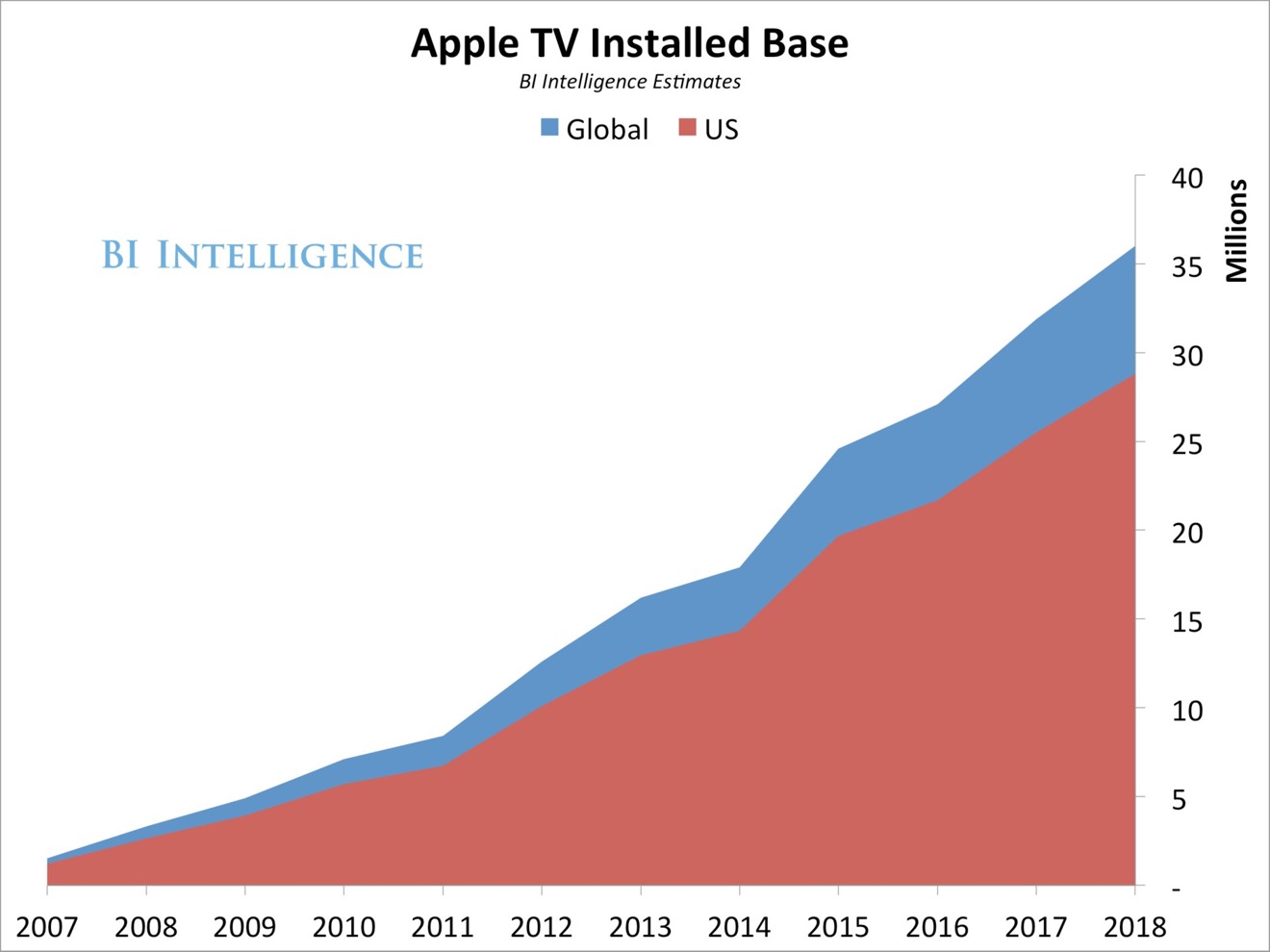 All smart speakers sold in 2017 were about where Apple TV was estimated to be 2015. Source: BusinessInsider
All smart speakers sold in 2017 were about where Apple TV was estimated to be 2015. Source: BusinessInsider Apple TV not only sells apps, content from iTunes and subscriptions to Apple Music, Netflix, HBO and other services, but also integrates with HomeKit alongside HomePod, and can further stream audio to HomePod via AirPlay. It doesn't yet take commands in the other direction, allowing you to ask HomePod to play content on Apple TV. That sort of integration is clearly not too far off, however.
Apple clearly benefits from having sold only higher-end, premium Apple TV hardware, rather than cheap dongles with little potential for updates. What's less appreciated is that Apple is selling the building blocks for home applications that need powerful, encrypted, Continuity-connected, high-quality hardware.
Expect that Amazon and Google will continue to deliver smart apps for Apple's emerging home platform even as their own standalone voice platforms tank alongside their loss leader hardware sales, just as previously occurred in smartphones, tablets and wearables.
 Daniel Eran Dilger
Daniel Eran Dilger

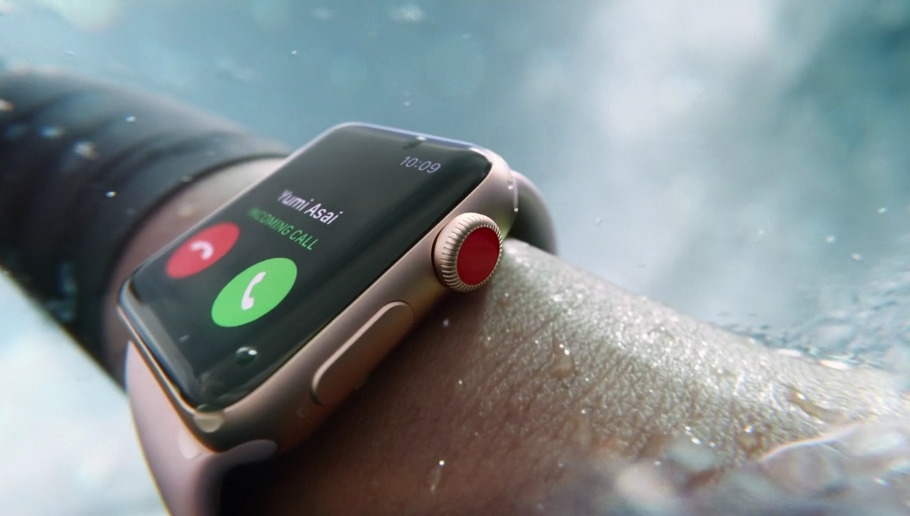

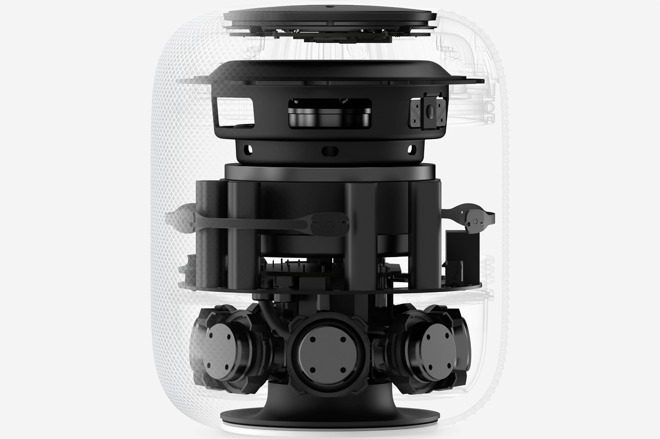
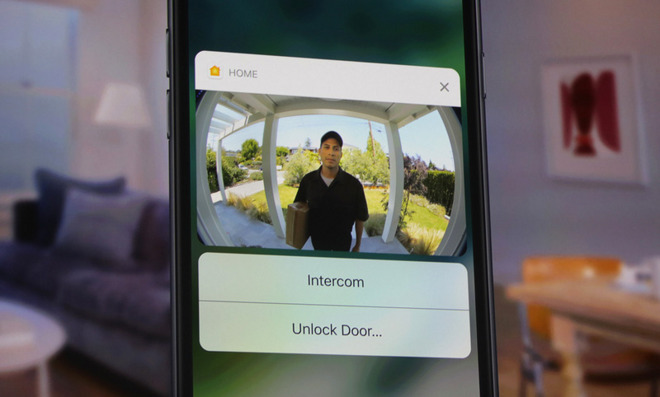
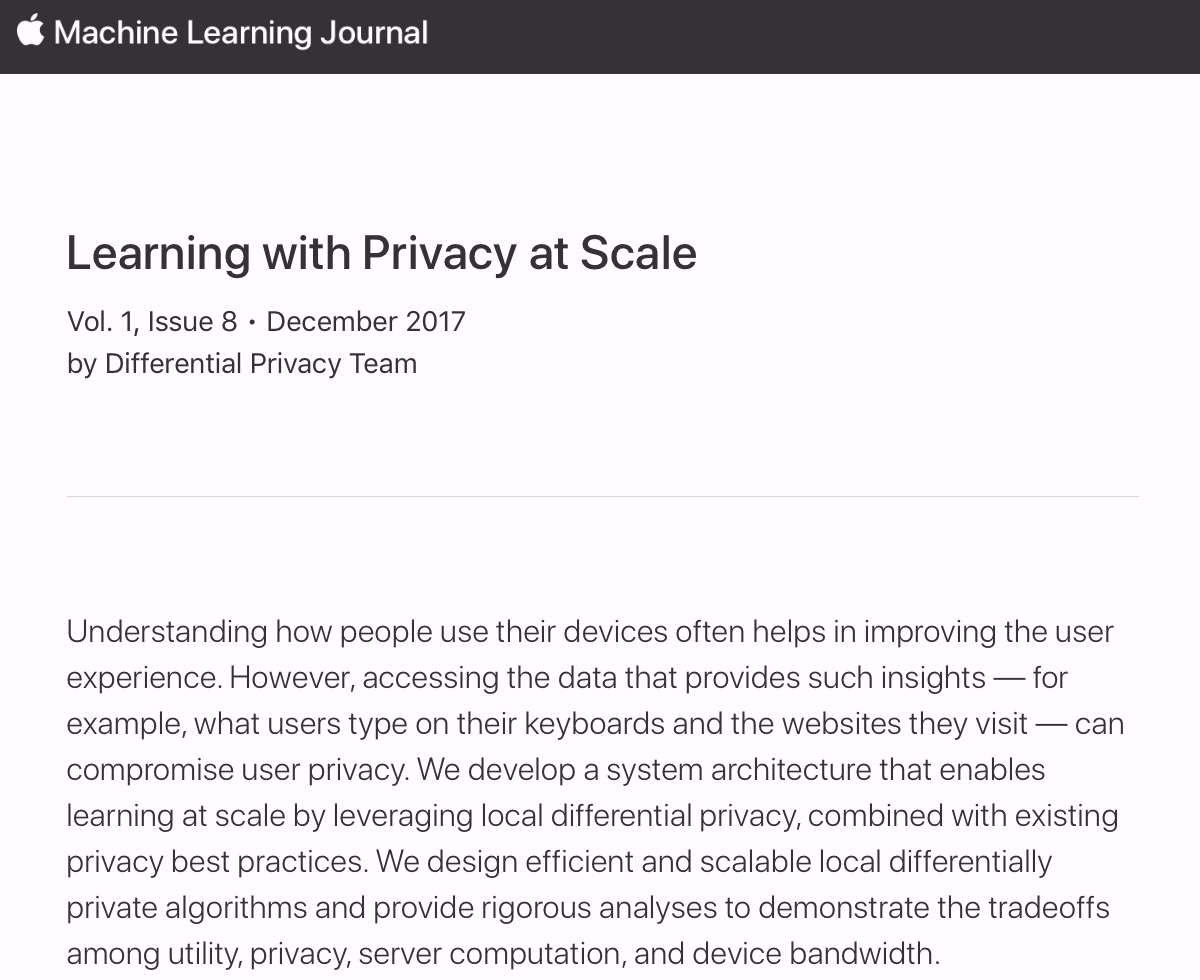

-m.jpg)






 Marko Zivkovic
Marko Zivkovic
 Mike Wuerthele
Mike Wuerthele
 Christine McKee
Christine McKee
 Amber Neely
Amber Neely
 Wesley Hilliard
Wesley Hilliard

 William Gallagher
William Gallagher









48 Comments
Also, because siri sucks.
For this to work, Apple needs to make the acquisition of compatible home automation devices as easy as buying a song on iTunes was back in the day. Leaving it up to the cacophony of the open marketplace is a no-go. For example, if there were even a tool that I could take a pic of my ceiling tungsten halogen low voltage ceiling light fixture’s lamp, and it would return a list of HomeKit compatible bulbs, by wattage, and a button to order . . . . In other words, make it convenient and idiot-proof to adopt. Otherwise it’ll just be toys for geeks for a long time while others pass Apple by.
Great article. I got the Home pod day one. While Apple still needs to fix some Siri related issues, the point that so many “hostile” bloggers miss is that the Home Pod is not an Amazon or Google competitor. And if one wants a more versatile Siri device which works flawlessly with face ID, get the iPhone X. The Home Pod is, first and foremost, a music device that is compact, astoundingly engineered and wonderful to listen to. It is, by far, way above the competition. That is what Apple set out to do, and it did. If people want a simple voice assistant like the Echo, they should get one. But, if people want a great music sustem with many Sir features already built in, get the Home Pod. i am sure Apple will add more Siri functionality over time, but right now I am listening to Apple music in my living room, and it is a wonderful experience. Just like the new phone, the airpods and now the HomePod, Apple has hit a home run.